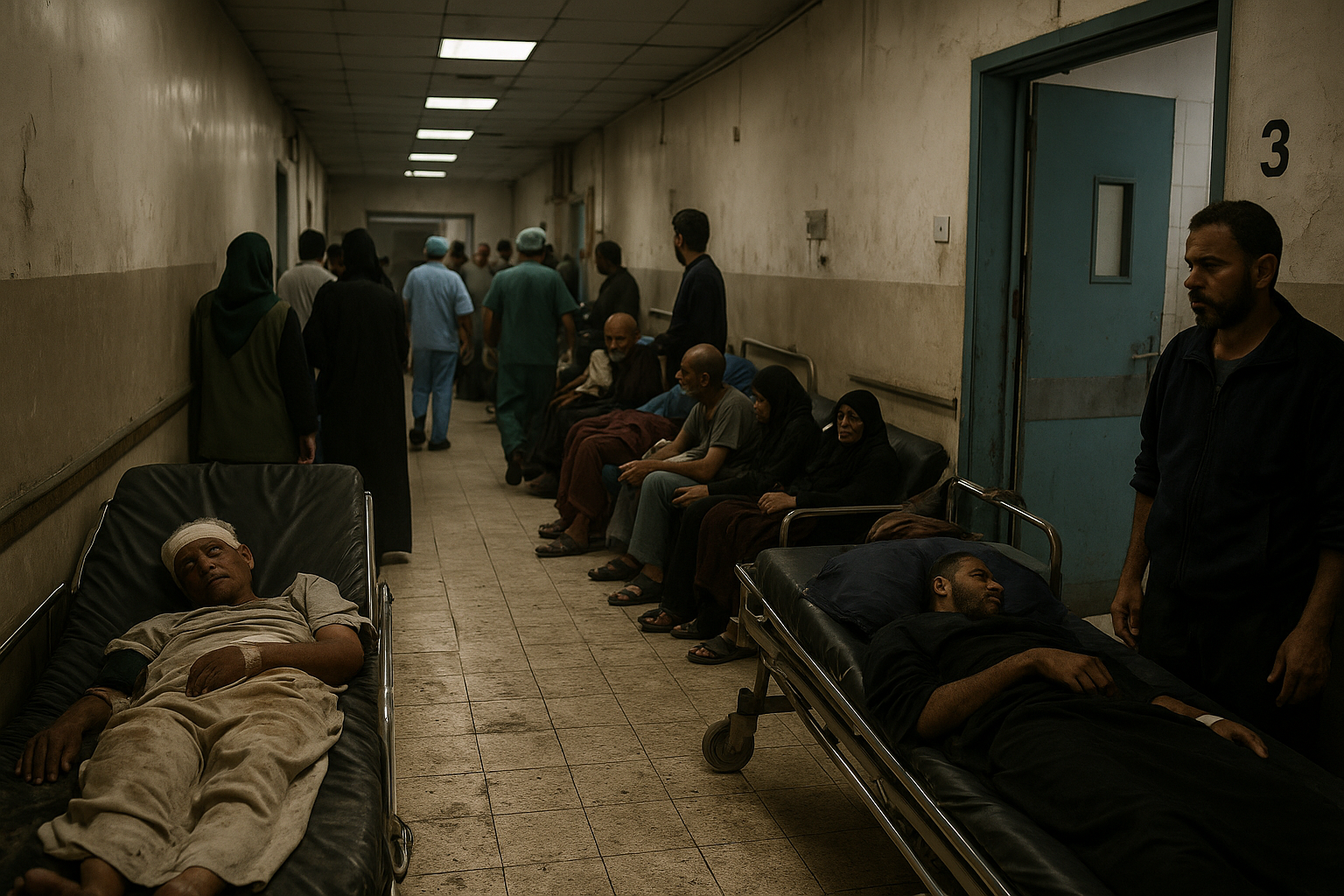UN Experts Urge UK Not to Classify Palestine Action as Terrorist Group
“We are concerned at the unjustified labelling of a political protest movement as ‘terrorist’,” the UN experts said in a statement.

A group of UN human rights experts has strongly urged the United Kingdom to refrain from banning the protest movement Palestine Action as a terrorist organisation, warning that such a move could set a dangerous precedent for the treatment of civil disobedience, political dissent, and human rights advocacy.
The warning follows signals from the UK Government that it may invoke the Terrorism Act 2000 to proscribe the activist group, alleging that its members have engaged in acts of criminal damage at military facilities and arms manufacturers in pursuit of political aims. Proscription under the Act would criminalize a wide range of activities associated with the group — including public support, organizing events, or even wearing symbolic clothing — and could result in prison sentences of up to 14 years.
“We are concerned at the unjustified labelling of a political protest movement as ‘terrorist’,” the UN experts said in a statement. “According to international standards, acts of protest that damage property, but are not intended to kill or injure people, should not be treated as terrorism.”
Who Are the UN Experts?
The UN experts involved include Special Rapporteurs on freedom of expression, peaceful assembly, human rights defenders, and counter-terrorism and human rights, among others. Though not issuing a formal legal ruling, their opinions are based on established international legal standards and best practices supported by key UN bodies such as the Security Council’s Counter-Terrorism Executive Directorate.
These independent experts have formally contacted the UK Government, seeking clarification and raising concerns over the implications of proscription on civil liberties, freedom of speech, and political participation.
Understanding Palestine Action
Founded in 2020, Palestine Action is a UK-based direct action network that targets corporations linked to Israeli military operations and the arms trade, including Elbit Systems, Israel’s largest private arms manufacturer. The group’s tactics include occupations, blockades, property defacement, and disruptions of company operations. Their mission, according to their public communications, is to “dismantle” UK complicity in what they describe as Israeli apartheid, occupation, and genocide in Palestine.
While critics have condemned some of their methods as unlawful and disruptive, the group maintains that its actions are non-violent and focused on property, not people.
Property Damage ≠ Terrorism, Say UN Experts
While the Terrorism Act 2000 allows for a broad interpretation of terrorism to include serious damage to property, the UN experts emphasized that international best practice limits the definition of terrorism to acts intended to cause death or serious physical harm in pursuit of coercive political aims.
“Mere property damage, without endangering life, is not sufficiently serious to qualify as terrorism,” the experts said, noting that even the UK had supported this interpretation in UN Security Council Resolution 1566 (2004).
They stressed that protest actions involving damage to property — especially when carried out in the context of political expression, human rights defense, or civil disobedience — should be prosecuted under ordinary criminal law, not as terrorism. Applying terrorism laws to such acts, they warned, risks criminalizing legitimate political expression.
Risks to Civil Liberties and Democratic Participation
The experts cautioned that banning Palestine Action would have a chilling effect on public protest and human rights advocacy, with wide-reaching implications:
-
Individuals could face criminal charges simply for association with the group, even if they had not participated in any direct actions.
-
Organizing or attending meetings, promoting the group’s causes, or displaying symbols or slogans linked to Palestine Action could become criminal offenses.
-
The broad nature of the Terrorism Act’s provisions may infringe upon freedom of speech, opinion, assembly, and political participation.
“These offences would criminalise legitimate activities by innocent members of the group that do not contribute in any way to property damage by other members, let alone terrorism,” the experts said.
A Call for Proportionate and Lawful Responses
The UN experts acknowledged the UK’s right and obligation to ensure public safety and uphold the rule of law. However, they stressed that responses must remain proportionate and respect international legal standards, especially in democratic societies.
They urged the UK Government to:
-
Abstain from proscribing Palestine Action under terrorism legislation.
-
Uphold the right to protest, even when the message or methods are controversial.
-
Ensure that counter-terrorism laws are not weaponized against political dissent or human rights advocacy.
“Peacefully exercising the rights to freedom of expression, assembly, and association should never be grounds for criminal prosecution,” the experts concluded.
What’s Next?
The UK Government has not yet confirmed whether it will proceed with the ban, but pressure is mounting from both supporters and critics of Palestine Action. The Home Secretary has the authority to recommend proscription, which would then require Parliamentary approval.
Civil liberties organizations and legal experts in the UK have echoed the UN’s concerns, warning that using counter-terrorism laws against protest groups could set a dangerous precedent, threatening the freedom to dissent in one of the world’s oldest democracies.
ALSO READ
Israeli strikes on Iran have killed at least 639 people and wounded 1,329 others, a human rights group says, reports AP.
Reflecting on the Emergency: An Era of Curtailed Civil Liberties
UN's Ongoing Struggle: Human Rights Abuses in North Korea Unveiled
Rajesh Talwar: An Illuminating Force in Human Rights and Literature
EU Raises Human Rights Concerns Over Israel's Actions in Gaza










